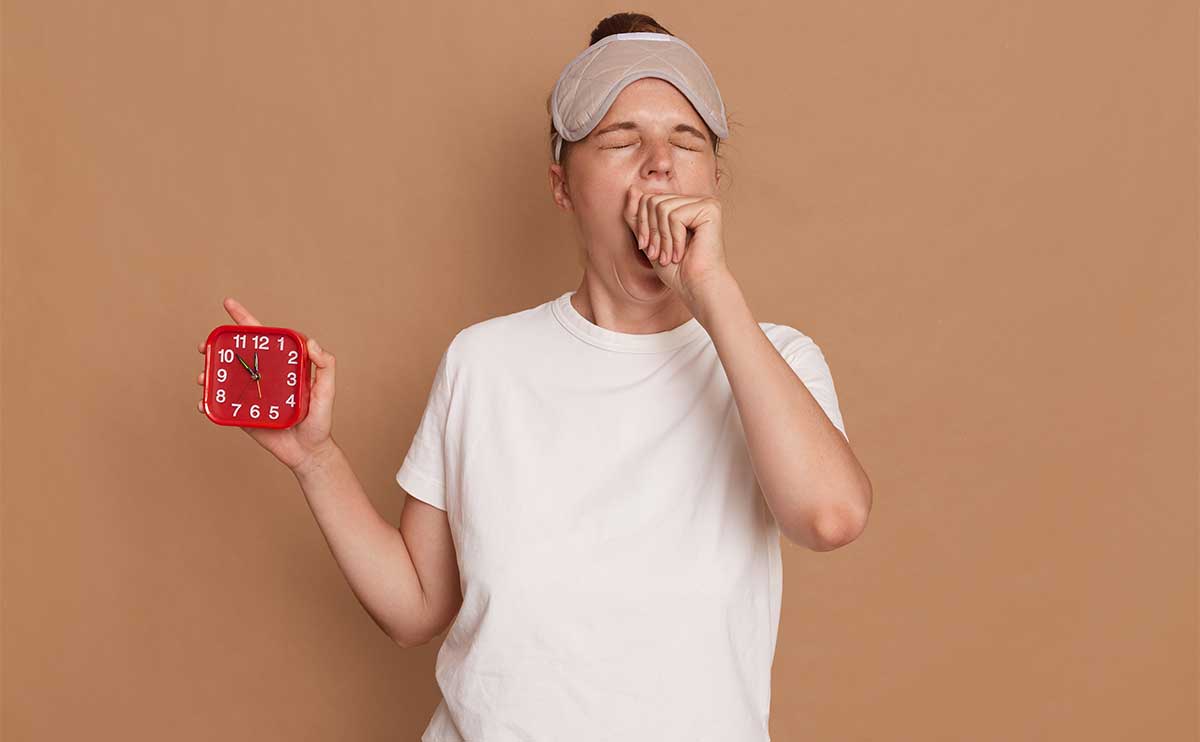Sleepiness is the state in which an individual feels the desire to sleep during the daytime, when he or she should normally be active and alert. Feeling constantly tired and sluggish during the day can negatively affect social and professional life. Although this situation is mostly caused by not getting enough and quality sleep, it can also be a sign of some neurological and medical problems.
Specialist Neurologist Gökçen Hatipoğlu provides comprehensive diagnosis and treatment services, especially for sleepiness, sleep disorders and other neurological diseases, in his neurology office located on Bağdat Street, Istanbul.
What Causes Sleepiness?
Sleepiness can occur due to many factors. While this may generally be caused by lifestyle habits, it may also indicate some health problems. Here are the most common causes of sleepiness:
- Insufficient Sleep and Poor Quality Sleep: Not getting enough sleep or poor sleep quality can cause feeling sleepy during the day. Interrupted night sleep or irregular sleeping hours also trigger this condition.
- Sleep Apnea: Sleep apnea, in which breathing pauses during sleep, causes frequent awakenings throughout the night, leading to sleepiness throughout the day.
- Narcolepsy: Narcolepsy is a neurological disorder that manifests itself with sudden sleep attacks. Narcolepsy patients may fall asleep suddenly during the day.
- Narcolepsy: Narcolepsy is a neurological disorder that manifests itself with sudden sleep attacks. Narcolepsy patients may fall asleep suddenly during the day.
- Medication Side Effects: Side effects of some medications include sleepiness. Medications, especially sedatives or antihistamines, can trigger this condition.
- Health Problems: Health problems such as diabetes, thyroid problems, or chronic pain can also increase feelings of sleepiness.
What are the symptoms of sleepiness?
The most common symptoms seen in individuals experiencing sleepiness are:
- Poor memory
- Irritability, stress and tension
- Difficulty staying awake
- Concentration and attention problems
- Poor performance in social activities and work
- Feeling the need to nap frequently during the day
How to Treat Sleepiness?
Treatment of sleepiness begins with identifying the underlying cause of the problem. Specialist Neurologist Gökçen Hatipoğlu offers special diagnosis and treatment plans to his patients with sleepiness problems. The treatment process is shaped according to the patient’s condition and needs. Here are the main methods used to treat sleepiness:
- Sleepiness Treatment by Regulating Sleep Hygiene
Paying attention to sleep hygiene is the first step to a quality sleep. Simple habits like taking a break from technology before bed and regulating sleep and wake times can reduce feelings of sleepiness.
- Treating Sleepiness with Behavioral Therapy
Cognitive Behavioral Therapy (CBT) is a very effective method for treating sleep disorders such as sleepiness. This therapy method helps change the person’s wrong thoughts and behaviors regarding sleep.
- Sleepiness Treatment with Medical Treatment
If sleepiness is severe and cannot be controlled with other methods, sleep-regulating medications recommended by the doctor can be used. However, drug treatment must be under the supervision of a specialist.
- Sleepiness Treatment with Narcolepsy and Sleep Apnea Treatment
If sleepiness is caused by a disease such as narcolepsy or sleep apnea, special treatment methods are applied for these conditions. For example, solutions such as the use of a CPAP device for sleep apnea or sleep-regulating medications for narcolepsy may be considered.
- Treatment of Sleepiness with Nutrition and Exercise Regulations
A healthy diet and regular exercise can help improve sleep quality. Avoiding excessive caffeine consumption and doing regular physical activities make it easier to sleep.
Suggestions for Preventing Sleepiness
To avoid sleepiness, you can pay attention to the following suggestions:
- Develop regular sleep habits: Try to sleep and wake up at the same time every day.
- Limit caffeine consumption: Reducing caffeine consumption, especially in the afternoon, can improve your sleep quality.
- Exercise: Physical activities during the day help you sleep easier at night.
- Create a comfortable sleeping environment: You can have a better quality sleep experience by making your room dark, quiet and cool.
Feeling sleepy throughout the day is a condition that reduces a person’s quality of life and indicates health problems. If you constantly feel tired and struggle with the desire to sleep during the day, Specialist provides diagnosis and treatment services for sleepiness and sleep disorders in his private neurology practice on Istanbul Bağdat Street. Dr. You can take the first step towards a quality life by meeting Gökçen Hatipoğlu.

